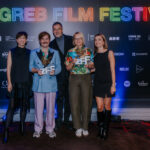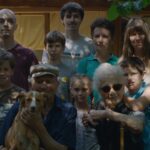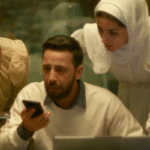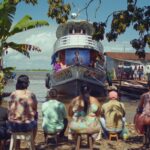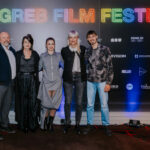- 06/11/2025
Welcome to ZFF: Inclusive Program in Collaboration with CKD
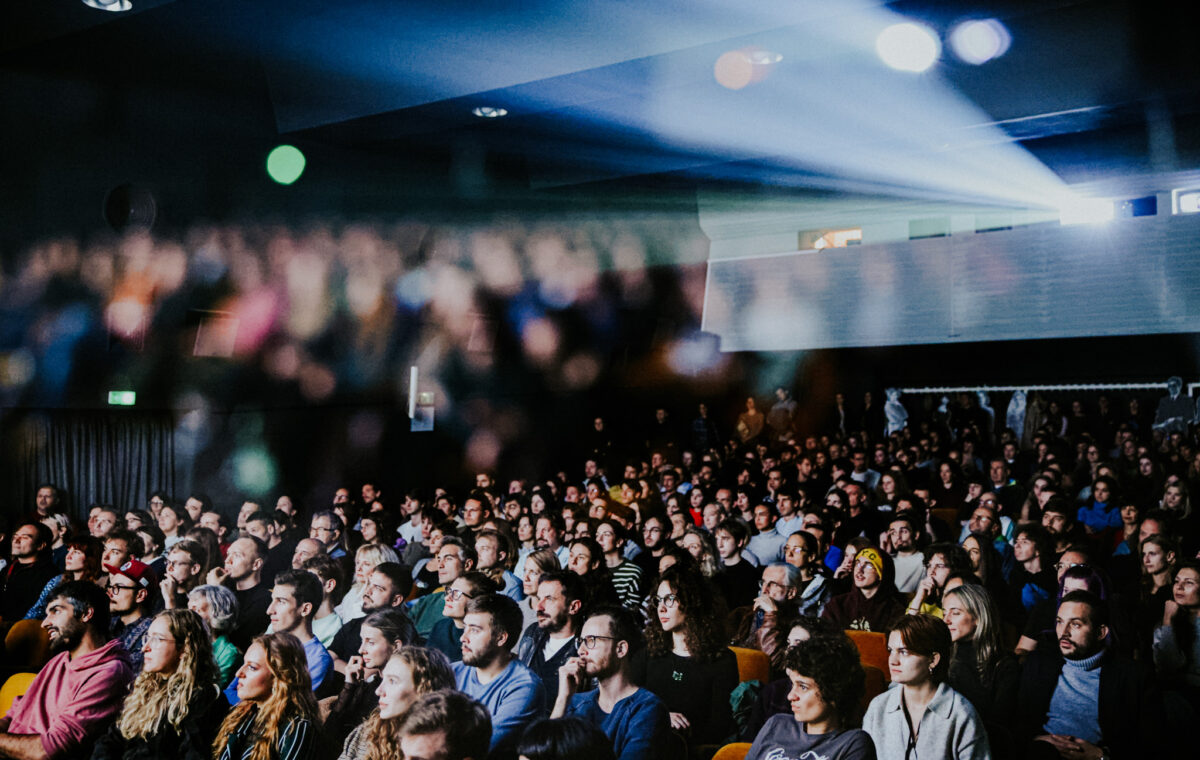
As part of this year’s Zagreb Film Festival, we are for the second year in a row implementing an inclusive screening program with Arabic and Ukrainian subtitles, with the aim of making our festival screenings more accessible to our new fellow citizens, for whom the language barrier can present a challenge to fully participating in the cultural life of the city. The Welcome to ZFF program is supported by the City of Zagreb’s Office for Culture and Civil Society, and this year we will present four films from the festival program subtitled into Arabic and Ukrainian.
Our cooperation with Arabic-speaking audiences is supported by the Centre for Culture of Dialogue (CKD). We spoke with Nejra Kadić Meškić, the Centre’s Executive Director, about the importance of inclusion, dialogue, and mutual understanding. Through the work of the association, she has been successfully facilitating the integration of foreigners, applicants for international protection, and other members of society into shared life in Croatia.
To start with, could you briefly introduce the Centre for Culture of Dialogue – how it came about and what your core mission is?
The Centre for Culture of Dialogue, or CKD for short, is a non-governmental organization founded in 2015 with the mission of encouraging and nurturing a culture of dialogue as the foundation for building a cohesive and inclusive society of equals. Our mission is to foster a society based on complete and profound mutual understanding, recognition, and respect among all people, regardless of differences in skin colour, language, religion, gender, national or social background, migration experience, or any other characteristics. We can say that we emerged, in a way, as a response to the growing trend of hate speech, racism, and xenophobia, as documented in relevant human rights reports across the European Union. Although our programs work with a variety of groups, we place particular focus on cultivating and encouraging dialogue between people with migrant experience and the local communities in which they have found their new home. We like to refer to them as our new neighbours, not only are they new to us, but we are new to them as well, which also implies that we still have much to learn from one another. We operate through a range of programs and projects that directly and indirectly support the process of integration into Croatian society, while also advocating for the acceptance of diversity within the host community.
In what ways do you support people in the process of integration?
The Centre for Culture of Dialogue applies a holistic approach to integration, combining social and community support with education, as well as linguistic and cultural mediation. By focusing on individual needs, we are able to respond to the specific circumstances of our new neighbours (language, culture, trauma related to displacement, etc.). We view integration as a two-way process that, in addition to direct individual support for new neighbours, also includes sensitizing local communities to their presence through creative and imaginative encounters involving culture, art, language, poetry, history, and sports, all activities that help to deepen dialogue. Through cooperation with government institutions, local authorities, public institutions, media, local communities, and organizations, the Centre for Culture of Dialogue works to foster inclusion—not only of our users, but also by creating meaningful connections between them and local residents. For example, in collaboration with the Croatian Football Federation, the Centre supports the integration of refugees through football, which provides opportunities for shared experiences, cooperation, and a sense of community. We operate throughout Croatia, which allows us to maintain close local presence and to tailor support to beneficiaries in different regions. You can learn more about our diverse activities at www.ccd.hr. We warmly invite you to join us in some of them!
Who are your users – which groups of foreigners and new residents of Croatia do you work with the most?
We work with people who have a migration background and hold different legal statuses in Croatia. However, as we are the implementing partner of the Ministry of the Interior of the Republic of Croatia on the project New Neighbours 2.0 – Inclusion of Persons Granted International Protection into Croatian Society, we primarily work with people who have been granted international protection in Croatia. These are asylum seekers and persons under subsidiary protection, whom we support in the early phase of integration – that is, immediately after international protection has been granted, when assistance in navigating the integration process is most needed.
How do you identify their needs and how do you support them?
We take an individual approach to every new neighbour through a mobile team that operates in the local community where they live. The mobile team consists of an integration case manager and a cultural mediator who speaks the person’s native language and is familiar with their cultural background. Through individual support and direct work, we can recognize their needs and respond accordingly. For example, if someone wishes to continue their education in Croatia, we look for ways to make that possible. For those who are able to work, we support them in finding employment, learning the Croatian language, and becoming independent as soon as possible. We assist them in exercising their rights as well as fulfilling their obligations in Croatia. Our support spans all areas of life: from regulating legal status, employment and education, social welfare and family reunification, to language learning, cultural orientation, neighbourhood relations, participation in social and cultural events in the local community, expanding social networks, and more.
What are the biggest challenges you face when working with new members of the community?
Learning the language is one of the challenges, as the relevant institutions do not organize language courses for people who have been granted international protection. Because of this, we had to organize and provide language instruction ourselves, as well as introduce newcomers to Croatian culture and customs. Integration is a long-term process which does not happen “overnight.” Coordinated and synergistic action across different sectors is necessary for the successful inclusion of new neighbours into their new communities. Cultural differences are also a challenge, but one we always welcome, because we learn a great deal from each other. Getting to know and adapting to cultural differences is often accompanied by various anecdotes, which makes for very interesting situations we enjoy remembering later. Working at the Centre for Culture of Dialogue is, in a way, like having the chance to travel without a passport — through the different people we work with, we directly encounter cultures, customs, religions, countries, and life stories from all over the world.
What role can culture and cultural activities play in this process?
Culture and cultural activities are key instruments of integration because they promote interfaith and intercultural dialogue, which encourages mutual understanding, respect for differences, and reduces prejudice and stereotypes. Our collaborative cultural initiatives help foster a sense of belonging among new neighbours, facilitating their emotional and social integration, strengthening social cohesion, and enabling a two-way integration process—both the community and the newcomers learn from one another. Cultural activities also have the power to reach those who may not yet be aware of these issues, which makes them a strong tool for promoting human rights. In addition, cultural activities support the preservation and exchange of diverse cultural identities.
In your opinion, how important are programs like ours – film screenings with Arabic and Ukrainian subtitles – for including new members of the community in Zagreb’s cultural life?
Programs such as this one are extremely important for promoting and fostering intercultural dialogue, as well as for building and strengthening an intercultural society. They are valuable because they allow people with migrant experience who speak Arabic and Ukrainian – especially since language is, for many, a key part of their identity – to connect and integrate more easily. Initiatives like yours help create a sense of belonging and connection to one’s identity within a new society, which is not always easy to achieve. While learning Croatian is essential for integration as it is the language of the host society, it is equally important to preserve one’s mother tongue as an integral part of personal and cultural identity. The collaboration between the Centre for Culture of Dialogue and the Zagreb Film Festival contributes to raising awareness among the local population about new neighbours, which plays an important role in fostering mutual understanding and acceptance.
The films will be screened throughout the duration of the festival (November 10–16, 2025) at Cinestar Branimir (Ulica kneza Branimira 29) and at the Museum of Contemporary Art (Avenija Dubrovnik 17). Two films, How Come It’s All Green Out Here? and Sorry, Baby, are included in the main feature film competition, while Urchin is screened as part of the Big 5 program.
One of the screenings in Arabic is intended specifically for younger audiences – we will be showing the animated children’s film Savages. After the screening, we invite you to join us for a get-together at MSU, organized by the Centre for Culture of Dialogue.

